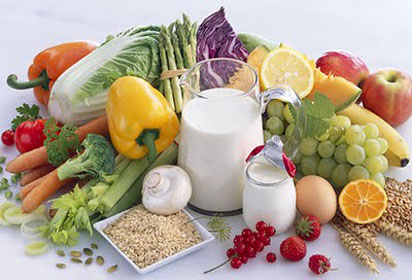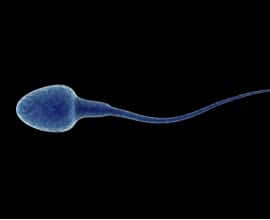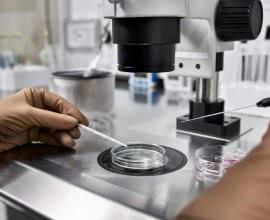Fertility Boosting Diet for Her: Part 1
Up to a third of cases of infertility in the world are classed as unexplained which means doctors aren't able to identify any medical issues in a woman or a man hindering them from successful conception.
Being diagnosed infertile without the reason for it being identified is twice sad, however this is also the case when fertility specialists' advice is to take under control the every-day choices that a woman or a man makes (like, for example, what they eat, drink, and think, whether they work out or not) as, suprisingly, changing of a lifestyle can make even bigger difference in terms of infertility than it's purposeful treatment.
It means that we're able to influence, to a certain extent, our fertlity by ourselves. For example, bringing changes to one's diet can give a radical positive change to their overall body's hormone balance which subsequently leads to a couple's eggs and sperm being healthier and more 'productive'. In addition, recent research at Harvard University found that women who made dietary changes reduced their risk of infertility by as much as 80%.
Unlike other important factors affecting fertility such as age and genetics, food is the factor which we can completely take control of.
Let's check the first part of 'fertility boosters' that nutritionists all over the world commonly advise women to consume when trying for a baby.
Full-fat diary
Which means do not spend more time standing in front of an open fridge in a supermarket reading milk packs. Just take the 'regular' one which your mum used to buy for the whole family. The same with yogurt, cottage cheese and the rest of diary products. One regular glass of full-fat milk a day is enough to 'boost' fertility.
What does it do? It’s thought that the fat in dairy helps improve ovarian function.
Fish
Except those which contain a lot of mercury (like swordfish, shark, king mackerel). Low-mercury fish includes salmon, whitefish, sardines, and herring. The mentioned kinds of fish contain important omega-3 fatty acids and vitamin D.
What does it do? Higher intakes of omega-3 fatty acids have been linked to better egg quality and have overall anti-inflammatory effect. Vitamin D helps increase progesterone and estrogen in women, which improves conception chances.
Healthy fats
'Natural' fats containing a high amount of vitamin D are those 'good' fats prosperous for a body. Examples: avocados, olive and coconut oil, nuts and seeds.
What does it do? Many women are vitamin D deficient, because when dieting they try to avoid any type of fat. Correcting vitamin D deficiency may help improve menstrual cycle regularity, and balance hormones.
Greens
Spinach, broccoli, kale, cauliflower, cabbage, arugula, and others.
What does it do? Greens in general, and leafy greens in particular are high in folate, vitamin which a few studies have shown may improve ovulation.

Whole grains
Dark bread over white, brown rice over white, whole wheat pasta over white.
What does it do? Consuming whole grain food helps balance the insulin level. If insulin functions properly, the hormone levels are more likely to stay well-balanced which is an important fertility-boost factor.
According to the American Pregnancy Association, one should allow three months to a year for dietary changes to take root. However, if a woman's already well into baby-making, it's never too late. By eating healthy and diverse food we do not only give our body a better chance to have a baby, but in the same time we prepare it to welcome somebody new inside, in a 'cleaner' environment.
Don't we also make sure our flat is clean before our guets to come?
In the Part 2 I will speak, among others, on food and beverages to avoid when trying to get pregnant.
Resources used:
www.mindbodygreen.com, www.mirror.co.uk, www.babycenter.com














